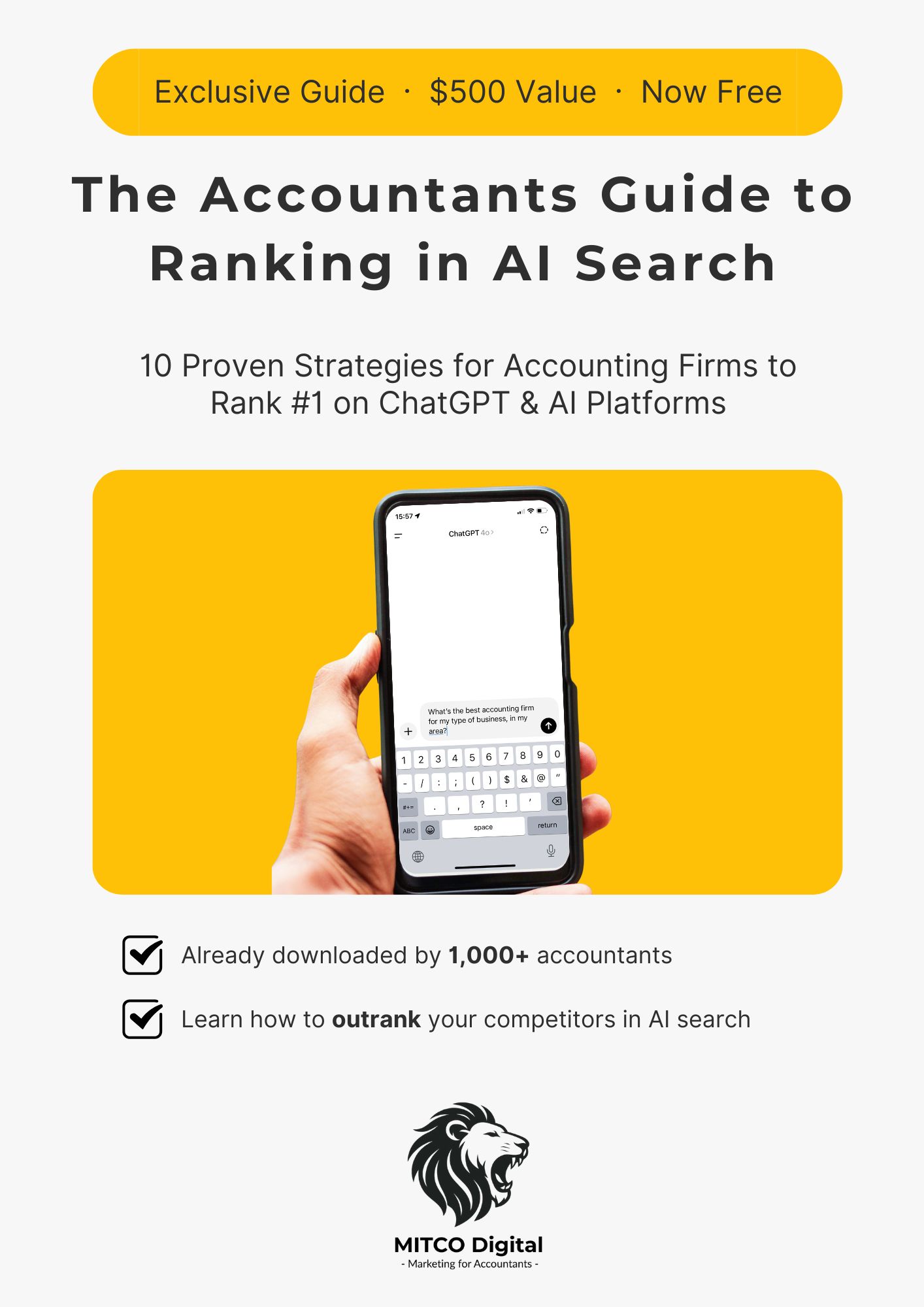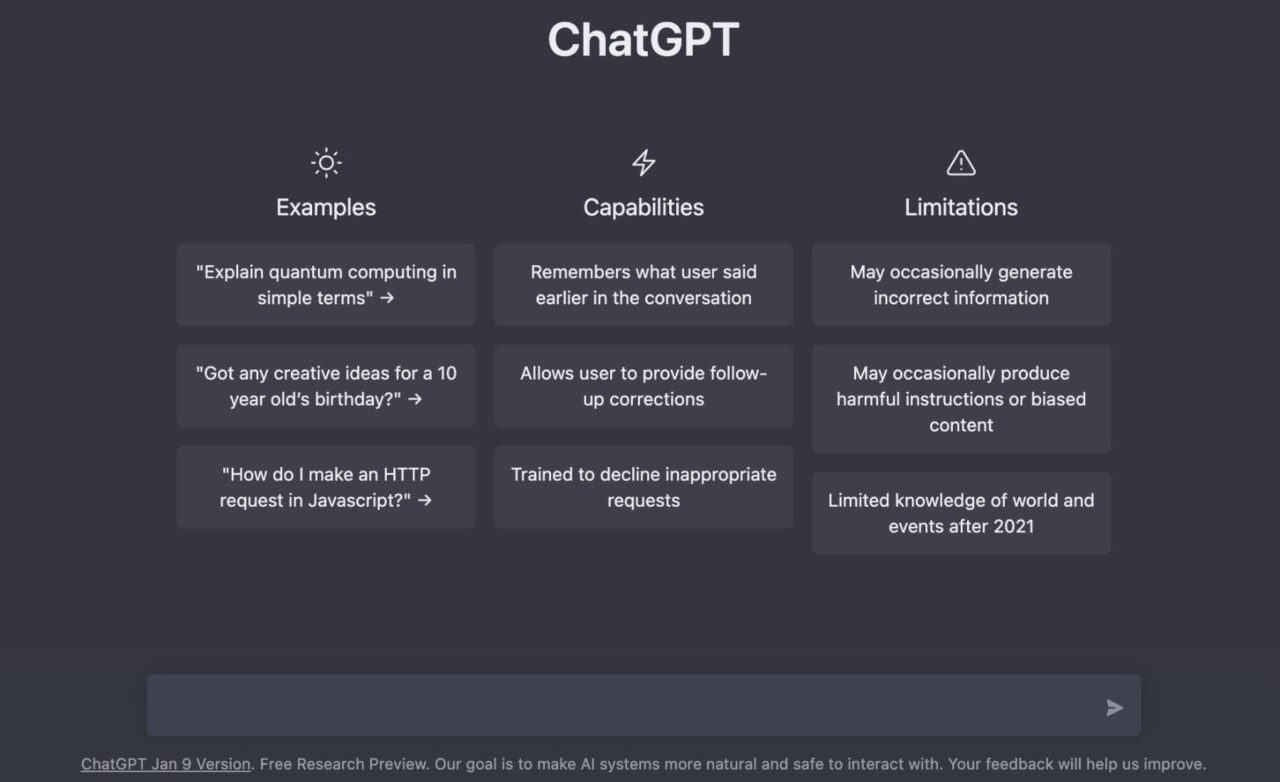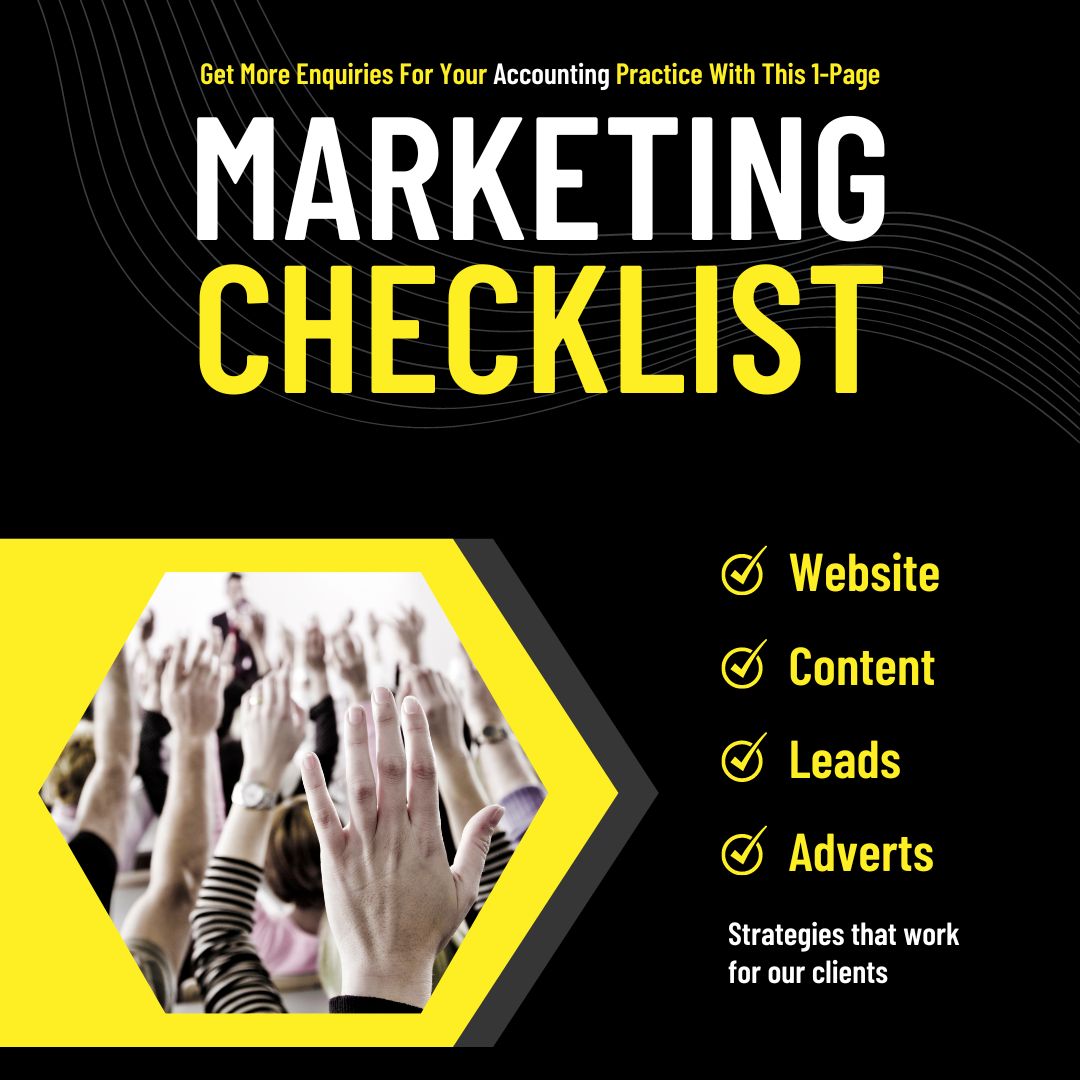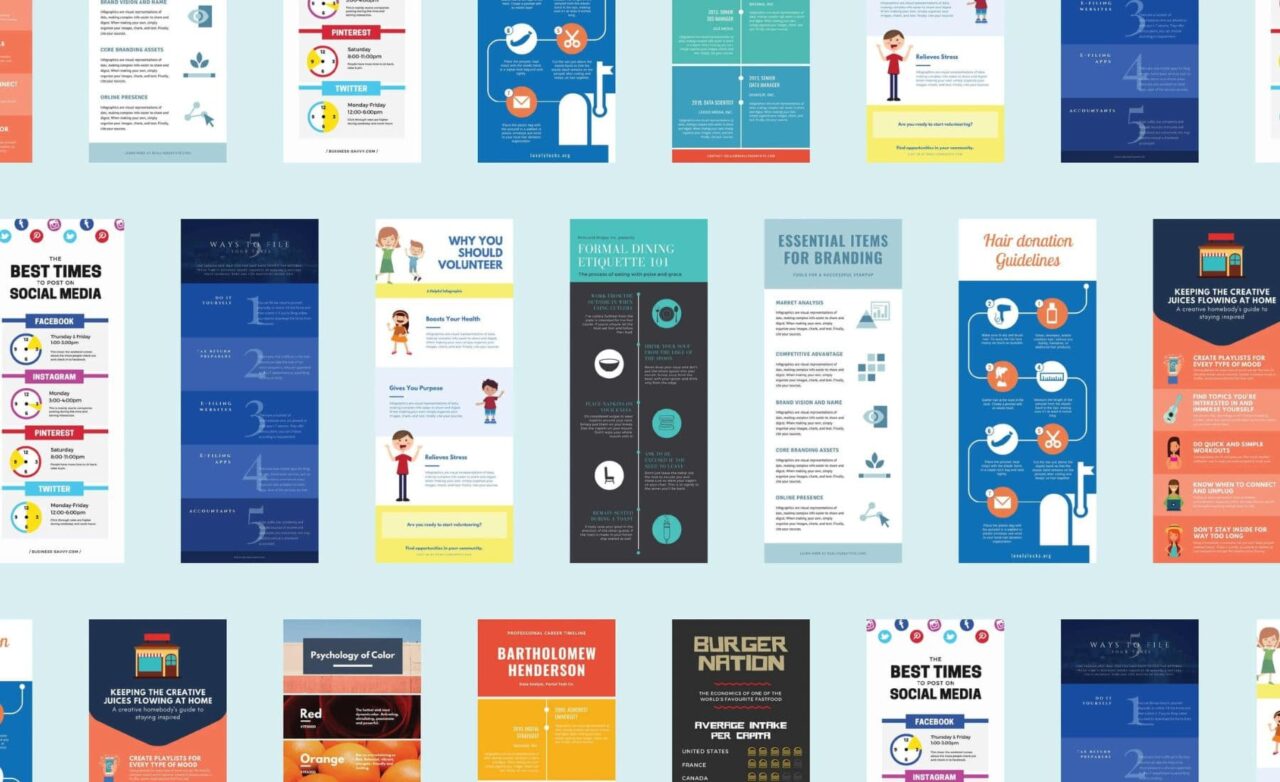Exclusive Guide · $500 Value · Now Free
The Accountants Guide to Rank in AI Search
- 10 Proven Strategie to Rank on ChatGPT & AI Platforms

Content marketing just got a whole lot easier with AI.
Here’s 10 types of content to consider.
With AI like ChatGPT the ability to create different types of great content has become a lot easier. You can give a brief to the Artificial Intelligence bot, asking it to write a 2,000 word blog, then tell it to turn that into a video text, then it into a series of social media posts and finally emails. While you can’t rely on the AI (yet!) to do all the work, it can save you a lot of time in research and thinking. Let’s look at 10 types of content that you (or your AI ’employee’) can create for your accounting firm or small business.
In this list of 10 types of content we look at:

Avoid wasting your time and money with strategies that don’t work. We work exclusively with accounting and bookkeeping firms. That means you get a marketing plan that works. Let’s create a strategy for your firm today!
Blogging is the practice of writing articles (or posts) on your company website, or on a 3rd party site, like Medium. It’s is still one of the best ways to rank for relevant keywords and get traffic to your website via search engines like Google.
There was a time when the type of blog content, and the quality of that content, didn’t matter too much for rankings. This meant that SEO specialists didn’t put much effort into the quality they produced. But over the years, search engine algorithms have become smarter, and are now highly focusing on serving us (the searchers) with the best quality answers to our questions. If you want to know what search engines consider ‘quality’ blog content, take a look at Google’s E-A-T principles.
There are a number of different types of blogs that you can create including long-format, short-format, lists, thought leadership articles and ‘how-to’ guides.
But, there’s no point writing blogs if no-one is searching for them or finding them, so make sure you do your SEO and keyword research first.

An AI tool like GPT 3 Chat can be extremely useful for blog writing but there’s a couple of things to be wary of right now:
Our advice: Use AI, but as a research tool. It can save you a large amount of time, especially on more complex matters like complex tax issues for example. Take what it gives you and write your own blog, adding a unique and original spin.
Video is a powerful and successful type of marketing content. It’s successful because its a medium which many people prefer to consume (instead of reading or listening). It’s also a powerful way to connect with your audience emotionally through imagery and sound.
For accountants and bookkeepers, video is a great way to break down the impersonal, digital divide that exists between a website visitor and you as the owner of the firm. You can use video in a number of different ways:
Videos help prospects get to know you, without actually meeting you, helping to break down the barriers and build ‘know-like-trust’ before they even meet you.
Webinars are a type of content marketing that tie into video, but they’re different. The great thing about webinars is that you can take clips from your webinar and re-use them as a video on social media, Youtube, email marketing and your website.
Webinar marketing may seem daunting. If you’re considering running webinars, we suggest just that you don’t over think it. Create a simple plan and get started, with the only expectation from the first one being to learn and improve. Don’t expect 100’s of leads from your first webinar. Learn how it works, get comfortable talking live and moving through your material.
Start simple – possibly 1 webinar every quarter on a topic that you are very comfortable. You could even use the same topic multiple times, just targeting a new audience each time.
A lead magnet (or opt-in) is a downloadable resource that you offer prospects, in return for their contact details. Types of lead magnets include:
Instead of creating multiple lead magnets, focus on creating 1 great one. Set up a simple and attractive journey for prospects to go through. Typically you’d run ads or have good website traffic to drive people to the landing page. Then set up automated email sequences to follow `up with leads who download your lead magnet. Once you’ve perfected the process, repeat it with another great resource.
The best part about a great lead magnet is that once the hard work has been done and your automations are working well, you can leave it to run and generate a consistent flow of leads for you.

Download our 1 Page marketing checklist for accountants and bookkeepers.
We give you 24, easy-to-action marketing tips to help you get new clients online.
The checklist covers your website, content, ads and lead generation.
This is a type of content marketing that’s growing in popularity. However, as a small business, unless a podcast is a channel that really fits your marketing strategy and brand, it may not be the best option. You may find that it requires a lot of time for preparation and editing, never mind the time to shoot the podcast. You’ll also need to spend money to promote your podcast. For CPAs and bookkeepers, this may be a marketing channel that just requires too much time, consistency and investment. But don’t let that put you off. If it is something you’re interested in, watch this video below.
Case studies are an excellent type of content marketing because they help demonstrate to prospects that your company is legit and can be trusted. It’s social evidence, from other business owners who have worked with your company, vouching for you as a person and for your services.
A video case study is preferable and it can be as simple as asking your best clients a few questions in 3 – 5 minutes call over Zoom. Record the conversation, edit it, and publish it on Youtube and your website. Just like we did! This is one of our favorite case studies.
One form of content that’s a little more fun to create is interactive content like online quizzes, polls, tests and assessments. These can also be a great tool to qualify leads. With the data that you get back from the quiz you can determine if the prospect is worth following up on.
Again, the key with this is to make it something that your target audience would actually want to take a few minutes to complete and that’s also easy to use. There are a couple of online platforms that you can build these interactive content pieces on and then add them to your website.
For professional service businesses like accountants and bookkeepers, email marketing is a must. With a good email list you have the opportunity to communicate with prospects almost for free (without ad costs, etc). Over time you can build relationships, build trust and stay top of mind so that they think of you first when the time comes to look for a service like yours.
The type of content you use with email marketing is important. Nobody wants to receive spam emails. You’ll need to understand your target audience well and offer meaningful content that’s easy to digest. If appropriate, a little bit of humor can work well!
Aim to get out one monthly newsletter with great content that’s relevant to your audience. Try to drive clicks back to your website or to get some other action (like booking a discovery call).
You should also use automated email marketing after somebody submits a contact form or downloads a lead magnet from your site. Set up a series of emails to connect with a prospect while they’re still thinking of your business.
You may need the services of a designer for this type of content marketing but who doesn’t love a great infographic! Select a topic (like ’10 Ways To Boost Cash Flow In Your Business’) and create a simple, engaging infographic.
Infographics are useful pieces of content because people tend to download them and share them. You can also share them easily across your social media platforms. Note, you can find great infographic templates on platforms like Canva to get started.

Social media marketing is an obvious form of content marketing (which is why we left it for last).
Nowadays, the organic reach that most people see on their social media posts is extremely low. You may have 1,000 business page followers and only 4% – 6% of users will see your content. One way to overcome that is to run ads to promote your content (which we don’t recommend; rather spend those ad dollars on conversion based campaigns).
A better way is to scale up your social media activity, but this does requires a lot more time and money. Aim to produce high-quality video posts that are well designed and stop people from scrolling. If you’re an accountant looking to do social media, take a look at these tips and strategies for CPAs and bookkeepers.

Our biggest piece of advice about content marketing for your business is this – produce quality rather than quantity. Don’t worry about what everyone else is doing, just worry about what you can do.
Set aside 1 day a week or a couple of days a month that are dedicated to your marketing. Research and create a content plan. Pick one topic and turn it into various pieces of content – something that your audience would want. With the same topic you can create a video, blog, infographic, lead magnet, emails and social media posts. Work on that one piece and get it right before moving on.
If you’re an accountant or bookkeeper, speak to us about our content marketing packages. We can save you time, money and deliver quality, original content that has been proven to generate leads.

We exist to help accountants grow their businesses and annual revenue, by leveraging the real power of digital marketing.
Why would you waste money and time on strategies that don’t work and agencies that don’t understand your industry?
We know accounting. We understand your prospects. Most importantly, we know what works for accountants.
Contact us to discuss how we can help you grow your accounting firm.
